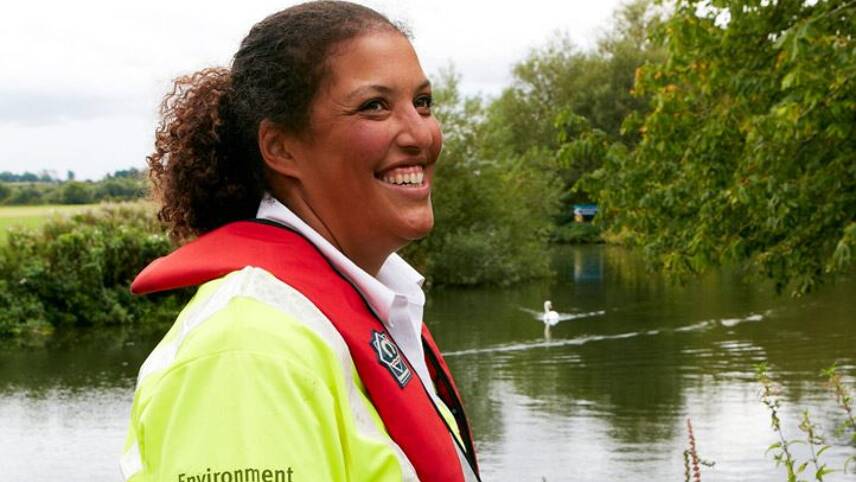Register for free and continue reading
Join our growing army of changemakers and get unlimited access to our premium content

Image: EA
Entitled ‘EA2025’, the plan states that a return to “business-as-usual” after the first wave of Covid-19 will not be sufficient – both in terms of the Agency’s ability to meet its 2030 emissions target and in terms of the national response to the twin climate and nature crises.
It outlines how the EA plans to ramp up ambition, investment and action across three key pillars: climate resilience and adaptation, green growth and future sustainability, and health air, land and water.
On the first pillar, the EA will analyse the likely impact of a variety of warming scenarios on the UK’s infrastructure and habitats, including 2C and 4C. The findings will be used to develop plans for flood prevention, water shortage preparation and coastal change and to reshape the EA’s remediation policies.
The EA notably faced much criticism on its approach to resilience during January and February, when storms Ciara and Dennis led to widespread flooding. According to the Met Office, February 2020 was the wettest on record. The EA estimates that the extreme-weather-related economic losses from last winter topped £333m.
Regarding green growth, the EA outlines plans to align with the UN’s Sustainable Development Goals (SDGs) in a bid to assist in the delivery of a Covid-19 recovery which is both green and socially just. It also expresses a desire to work more closely with businesses – particularly in the finance and built environment sectors – to ensure that sustainability does not fall down the agenda as the nation’s population grows and Ministers strive to meet housing targets.
Finally, the plan reiterates the Government’s overarching commitment to leave nature better than it was found, with improvements targeted across air quality, water quality and availability, biodiversity and soil health. The EA will urge businesses and Ministers to deliver ‘net-positive’ benefits for nature, instead of simply sustaining environmental performance.
The plan is fronted with strong rhetoric from EA chair Emma Howard-Boyd and chief executive Sir James Bevan. It states: “We need to take bold and transformative action to be the first generation to leave the environment in a better state than we found it while supporting a sustainable, fair and healthy recovery from the coronavirus pandemic.
“We know it won’t be easy. The global health emergency has shocked the world, placing extra pressure on lives, livelihoods and the economy. But it can also help us better understand the largest public health threat of the century, the climate emergency, which we put at the heart of everything we do.”
Besides reiterating the EA’s 2030 net-zero target, which will require emissions to fall by 8% annually, EA2025 targets the creation of 1,200 hectares of habitat and improvements for more than 4,000 kilometres of river.
Nature-based recovery?
The publication of the plan comes after Chancellor Rishi Sunak delivered his Summer Economic Update in the House of Commons, outlining the UK’s short-to-mid-term Covid-19 recovery plans.
Of the £160bn which the Treasury will allocate to economic recovery over this Parliament, just £40m has been confirmed for nature-related activities so far. The sum will be placed into a Green Jobs Challenge fund, intended to help environmental charities and local authorities launch or expand nature conservation and restoration programmes in England.
The Treasury is also in the process of creating its £640m nature for climate fund, announced at the Budget in March. The fund will finance new afforestation, reforestation and peatland restoration projects. Going forward, Sunak has said that similar funds will be created to help businesses and community groups expand existing nature projects and to lever financial sector support.
Green groups have broadly welcomed these moves but urged civil servants and Ministers to ensure that they are first steps.
Sarah George


Please login or Register to leave a comment.